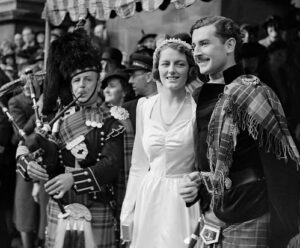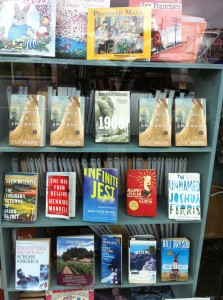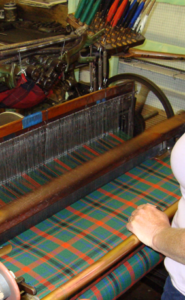Are Ancestors “Fair Game” in Fiction?
May 20, 2013 by ciji · Leave a Comment
 I remember when I was a young consumer reporter in my early days at ABC—long before I’d written or published novels like That Summer in Cornwall —when the subject of one of my radio assignments became very angry that I revealed that his company was pumping air into its ice cream to increase the bulk (and hence the weight) which, of course, meant they could charge-more-for-less.
I remember when I was a young consumer reporter in my early days at ABC—long before I’d written or published novels like That Summer in Cornwall —when the subject of one of my radio assignments became very angry that I revealed that his company was pumping air into its ice cream to increase the bulk (and hence the weight) which, of course, meant they could charge-more-for-less.
I told a veteran newspaperman about the significant blowback I received from Mr. Ice Cream and the head of the station’s ad department after the story aired, given that the chain where this tasty treat was sold turned out to be one of KABC’s biggest advertisers…oops! The old media hand gave me one of his droll looks and said, “Oh, I guess I forgot to warn you, Ciji. People who think they are important only want to be described in the noblest of terms. However, you’ll just have to ignore that and tell the truth.” That, he added, was my purpose as a reporter.
 I ran into an alarmingly similar problem when I was researching my first historical novel, Island of the Swans, a kind of a Gone with the Wind of Scotland saga that was based on the life of an historical figure, Jane Maxwell, the 4th Duchess of Gordon.
I ran into an alarmingly similar problem when I was researching my first historical novel, Island of the Swans, a kind of a Gone with the Wind of Scotland saga that was based on the life of an historical figure, Jane Maxwell, the 4th Duchess of Gordon.
I had contacted a descendant of one of the other “true-life” figures in this biographical novel, Baron Simon, the 15th Lord Lovat of Fraser, a celebrated World War II hero (played by Peter Lawford in the classic The Longest Day) who, along with his wife, Lady Rose, eventually hosted my son and me as guests at Balblair House for a few days on one of our trips to the Highlands to track down the important details of the amazing Duchess’ tumultuous life.
I had landed on the Lovats’ doorstep—literally—in search of information about the “lost lieutenant,” Thomas Fraser of Struy, who had erroneously been reported killed in the American Colonies while serving with the Black Watch regiment at Fort Pitt—now Pittsburgh, Pennsylvania.
I soon began to get that same, uneasy feeling when an eighteenth century Lord Lovat, painted here by Hogarth, was beginning to emerge as a slightly villainous figure in my story, preventing, it turned out, the lovely Jane Maxwell (from whom my own great grand-grandmother claimed our McCulloughs descended) from marrying the great love of her life, the aforementioned Simon Fraser’s ward, the handsome soldier, Lieutenant Thomas Fraser of Struy, later in the 78th Fraser Highlanders, as shown here.
I nervously explained to the present-day Lord Lovat, who had been so kind and helpful to me in my researches, that his ancestor Simon Lovat, son of “Simon the Fox” who had been beheaded for his nefarious deeds, was truly a dark force in the novel. The current Lord Lovat threw his head back and roared with laughter. “Oh!” he exclaimed to Lady Rose, “how frightfully amusing!”
Here he was—a genuine war hero and nobleman, memorialized during his lifetime with an enormous statue on a hill in the Scottish Highlands—and he wasn’t going to give me grief just because the truth lead me to an historical figure in my book whose selfish, frankly despicable actions truly drove the plot. I realized in that moment that creating a compelling story based on the facts as best as can be discovered, especially in a biographical novel dealing with “real-life” people who once walked the planet, is my purpose as a writer.
 That formative experience with Lord and Lady Lovat, seen here on their wedding day in 1938, taught me a great lesson: whether writing fact or fiction, my job is to let the evidence take this writer wherever it will. Simply tell the story–and damn the torpedeos!
That formative experience with Lord and Lady Lovat, seen here on their wedding day in 1938, taught me a great lesson: whether writing fact or fiction, my job is to let the evidence take this writer wherever it will. Simply tell the story–and damn the torpedeos!
But what if a character in my upcoming novel, That Autumn in Edinburgh, a modern day sequel to the historical novel, Island of the Swans, is based on a descendant of my own ancestor who—it turns out–may not have behaved so nobly? What will my family say….?
More on that sticky subject another time as I knuckle down to the next task at hand…and head for Scotland in June.
Filed under Blog, Ciji's Archives · Tagged with 78th Fraser Highlanders regiment, ancestor search, Black Watch Regiment, Ciji Ware author, Clan Fraser, Cornwall, eighteenth century British history, eighteenth century Scottish history, Fourth Duchess of Gordon, historical fiction, historical novels, Island of the Swans, Jane Maxwell, Lord Lovat of Fraser, Scotland, Simon, That Summer in Cornwall, truth versus fiction
Researching a Novel–Honestly!
May 16, 2013 by ciji · Leave a Comment
![]()
 In less than a month I’ll be heading off on what, to an outsider, probably looks like a lark.
In less than a month I’ll be heading off on what, to an outsider, probably looks like a lark.
Researching a work of fiction might sound like an oxymoron, but as a reporter with more than twenty-five years of experience in the world of “fact checking,” I’ve discovered after seven novels that getting the details right about the real world aspects of a story is just as important in a piece of “make-believe” as it is with “breaking news.” If a novelist screws up the data, believe me, you hear from your readers.
And that’s just as it should be.
In That Summer in Cornwall, the first in the 4 Seasons Quartet series, I’d been to Cornwall several times previously as my English cousin, Gay North, has hosted me in the West Country several times over the years, and especially during the research for an earlier novel, A Cottage by the Sea.
 However, as I embarked on That Summer in Cornwall, I knew virtually nothing about the world of search and rescue, nor about the amazing canines trained to find visitors who fall off the cliffs skirting the English Channel or down abandoned shafts that dot the beautiful countryside. So my trip to Cornwall last October was fun and exciting, to be sure, but it was also spent interviewing the Dog Unit Manager of the Devon and Cornwall Police, to say nothing of tramping up moors, along fast-running rivers, and peering down dark, forbidding mine shafts clinging to remote parts of the local landscape.
However, as I embarked on That Summer in Cornwall, I knew virtually nothing about the world of search and rescue, nor about the amazing canines trained to find visitors who fall off the cliffs skirting the English Channel or down abandoned shafts that dot the beautiful countryside. So my trip to Cornwall last October was fun and exciting, to be sure, but it was also spent interviewing the Dog Unit Manager of the Devon and Cornwall Police, to say nothing of tramping up moors, along fast-running rivers, and peering down dark, forbidding mine shafts clinging to remote parts of the local landscape.
Whatever the setting of a novel—even one that took place in my own backyard of San Francisco–as with A Race to Splendor about the rebuilding of the legendary Fairmont Hotel atop Nob hill after the 1906 earthquake and firestorm–the reportorial skills of “who, what, when, where, and why” are essential to getting the facts right so the world that a novelist creates for the reader rings true.
That Autumn in Edinburgh will be the third book I’ve set in Scotland—Wicked Company being the second and Island of the Swans (the prequel to my next project there) the first. And each research trip to the land of my mother’s ancestors has been a joy–but also involved some rather arduous work as well.
However, this time, the action is set not only in the spectacular city of Edinburgh, which I know well, but also in the Scottish Border country between the capital and the often-contested area of land where England officially begins.
On my upcoming research adventures, I’ll be learning about present-day factories producing ancient tartans; about cashmere manufacture and the struggle to stay afloat in a global economy where operations in the Far East have been allowed to pay their workers $37 a month—and where conditions are so unsafe, entire buildings collapse, killing a thousand women in their wake.
Oh yes…given my experience on trips past, I expect to have a wonderful time visiting a part of Scotland I’ve never seen, but, to me, this story I have percolating in my brain night and day right now is also serious business—and I’ll do my best to get the facts straight.
Filed under Blog, Ciji's Archives · Tagged with 1906 San Francisco earthquake, A Cottage by the Sea, A Race to Splendor, Caerhays Castle, Ciji Ware author, corgis, Cornwall, Cornwall Search and Rescue Team, cottage, Edinburgh, eighteenth century British history, eighteenth century Scottish history, fact checking, Fourth Duchess of Gordon, historical novels, Island of the Swans, Jane Maxwell, researching fiction, San Francisco Chinatown, Sourcebooks, That Summer in Cornwall, Wicked Company, women playwrights
Venice, Publishing, and My Paper Lion
May 6, 2013 by ciji · Leave a Comment
 Who doesn’t love Venice? Oh, I know, if you visit in the hot summer when the crowds are clogging the Piazza San Marco–and even buying a scoop of gelato can set you back ten bucks–you might not fall in love with the city as passionately as my husband and I have.
Who doesn’t love Venice? Oh, I know, if you visit in the hot summer when the crowds are clogging the Piazza San Marco–and even buying a scoop of gelato can set you back ten bucks–you might not fall in love with the city as passionately as my husband and I have. And yes, having espressos at Café Florian where Hemingway reportedly consulted his writer’s muse when staying there set us back $40 (and that was in October, no less!), but hey! I’m a published writer and I absolutely, positively had to sit in those chairs and look out at the same stunning vista he did.
And yes, having espressos at Café Florian where Hemingway reportedly consulted his writer’s muse when staying there set us back $40 (and that was in October, no less!), but hey! I’m a published writer and I absolutely, positively had to sit in those chairs and look out at the same stunning vista he did.
 We were blessed with cool weather and went to all the tourist attractions as early as they opened and thus had a perfectly delicious time during our week in Venice last year, even as the Agua Alta was rising.
We were blessed with cool weather and went to all the tourist attractions as early as they opened and thus had a perfectly delicious time during our week in Venice last year, even as the Agua Alta was rising.
The city swiftly and expertly put up the boardwalks, and besides, I was reading a gripping Donna Leon mystery novel, Aqua Alta, in my Pensione Accademia each evening before the gently sloshing water in the canal outside my window lulled me to sleep. Long term, the city is in peril, but on this particular visit, it was an experience I’ll remember always…
It was also the perfect way to commemorate 35 years of marriage and a very BIG birthday for both my husband me last year. “A celebration of lions” I called it, adoring all the images of these regal creatures we saw everywhere throughout this water-laced city. We learned that if the lion had his paw on an open book, the Renaissance City State of Venice was at peace; if the lion’s paw was on a closed book, Venice was at war.
Our writer pal, Michael Llewellyn had been this route before us and eventually sent us wonderful images of lions that he’d captured with his “real” camera, in contrast to my iPhone 4.
 When we got home from our Grand Tour last fall and decided to launch our own, independent publishing enterprise, the idea of using the concept of the Venetian lion as our colophon (i.e. “logo”) to signify our company instantly appealed to everyone involved.
When we got home from our Grand Tour last fall and decided to launch our own, independent publishing enterprise, the idea of using the concept of the Venetian lion as our colophon (i.e. “logo”) to signify our company instantly appealed to everyone involved.
So we sent a couple of photographic images to our designer and look what Kim Killion came up with…our magnificent Lion’s Paw Press “King of the Beasts” has his foot on three books, not one. And author Llewellyn gave us the best compliment of all. “I wish I’d thought of doing that!”
The icing on the cake is that Book 3 in my “Four Seasons Series” ( Book 1: That Summer in Cornwall, published in Feb of this year; Book 2: That Autumn in Edinburgh, due out next Fall) will be That Winter in Venice, set during the celebrated Carnivale season of exotic costumes and mist rising from the canals…
 It’s tough duty, but it seems we’ll just have to head back to La Serenissima in February of 2014 to witness Carnivale for ourselves. Research, you know…
It’s tough duty, but it seems we’ll just have to head back to La Serenissima in February of 2014 to witness Carnivale for ourselves. Research, you know…
Filed under Blog, Ciji's Archives · Tagged with Ciji Ware author, colophon, Edinburgh, Ernest Hemingway, Independent publishing, Michael Llewellyn Author, publishing logos, That Summer in Cornwall, Venetian Carnivale, Venetian lion, Venice
Mother’s Day Kudos to “Storytelling Moms”
April 29, 2013 by ciji · Leave a Comment
 Recently my son sent me this wonderful photo of my daughter-in-law reading to our two grandsons. As an author myself, and the daughter, granddaughter, and niece of professional writers, I say hats off and a huge thank you to all the “Storytelling Moms”–and Dads–who take the time to share their love of literature with the next generation.
Recently my son sent me this wonderful photo of my daughter-in-law reading to our two grandsons. As an author myself, and the daughter, granddaughter, and niece of professional writers, I say hats off and a huge thank you to all the “Storytelling Moms”–and Dads–who take the time to share their love of literature with the next generation.
However, Mother’s Day is upon us on May 12th, and this is by way of honoring the women in children’s lives who offer writers like me the inspiration to just keep typing! So here’s my heartfelt tribute to women like…
 …our country’s First Lady. Not only has Michelle Obama used her own Bully Pulpit to urge us to be mindful of healthy eating, she has been tireless in her promotion of literacy and the joys—and necessity—of reading to our kids.
…our country’s First Lady. Not only has Michelle Obama used her own Bully Pulpit to urge us to be mindful of healthy eating, she has been tireless in her promotion of literacy and the joys—and necessity—of reading to our kids.
And let’s remember to show our gratitude to the women across the country that not only read to their own children, but—as teachers—read to nation’s children nearly every day in the classroom. For youngsters who may not have anyone else in their lives taking the time to read to them, these are the people who often provide the spark that ignites a lifetime of literacy.
 I also appreciate the celebrity moms like the singer Madonna who show by example that reading to their kids can never begin too early…or stop too soon.
I also appreciate the celebrity moms like the singer Madonna who show by example that reading to their kids can never begin too early…or stop too soon.
Reading to children has been around along time, of course. Just have a look at this wonderful portrait by the American painter Mary Cassett (1844-1926) who created a number of lovely images of women with books in their hands, surrounding by young ones. A friend of Edgar Degas and other French Impressionists, Cassett emphasized the intimate bonds between mother and child and she did a remarkable number of works that are variations on this theme.
 So on this upcoming Mother’s Day, let us pay homage to all mothers (fathers and grandparents, too) who consistently read to their offspring–and even to their canines, as you see here with First Dog, Bo!
So on this upcoming Mother’s Day, let us pay homage to all mothers (fathers and grandparents, too) who consistently read to their offspring–and even to their canines, as you see here with First Dog, Bo!
Not only do they create the readers that authors like me aspire to please, but their efforts most often result in the molding of that most wonderful creation: a literate human being!
That Summer in Cornwall is Ciji Ware’s latest novel that deals with good moms—as well as the other kind…
Filed under Blog, Ciji's Archives · Tagged with Ciji Ware author, First Dog 'Bo', Madonna, Mary Cassett, Michelle Obama, moms who read, Mother's Day, That Summer in Cornwall
Creating Characters: Their Actions Drive the Plot!
April 25, 2013 by ciji · Leave a Comment
 Next time you look at a row of books on a shelf, think of how the authors of these novels had to figure out what was going to happen in these stories to keep you turning the pages—in other words: the plot.
Next time you look at a row of books on a shelf, think of how the authors of these novels had to figure out what was going to happen in these stories to keep you turning the pages—in other words: the plot.
When I was in the process of planning out my next novel, That Summer in Cornwall, which is a stand-alone sequel to A Cottage by the Sea (a book I’d written a decade before), I remembered the words of a very experienced storyteller that once said, “What do your characters want, and what are they willing to do to get it?”
After going the distance on six 100,000-word-plus novels, I finally get it: doing something to get what a person wants implies action…and action and conflict are elements that drive a plot.
It’s not that complicated, when you think about it, but figuring out what “they” are willing to do to get what they want requires imagination, for we all know that people will do all sorts of things—either admirable or despicable–to get what they want. It’s the author’s job to figure what a character would do, depending on—well—their character…what sorts of folks they are. (We can take up the all-important “biographical sketch” many authors write, early on, in another blog post here…)
 Meredith Champlin, the heroine in blue jeans and Wellington boots, basically wants to re-boot her life. With her service dog, Holly, trotting at her side, she escapes a dead-end relationship with a charming but alcoholic rodeo rider, along with her grueling job as a pediatric emergency room nurse at a children’s hospital in Wyoming to spend a few months at the “Money Pit” belonging to her cousin who has married an impecunious British landowner with a castle and an estate that is reeling from the current economic crisis.
Meredith Champlin, the heroine in blue jeans and Wellington boots, basically wants to re-boot her life. With her service dog, Holly, trotting at her side, she escapes a dead-end relationship with a charming but alcoholic rodeo rider, along with her grueling job as a pediatric emergency room nurse at a children’s hospital in Wyoming to spend a few months at the “Money Pit” belonging to her cousin who has married an impecunious British landowner with a castle and an estate that is reeling from the current economic crisis.
Added to that, Meredith, who ran a pet therapy program at her hospital, wants to help raise much needed cash by founding the Barton Hall Canine Obedience Academy, to say nothing of trying to turn her computer-addicted, eleven-year-old “Beverly Hills Brat” legal ward–whose mother has just died in a plane crash–into a decent human being.
And what does the hero want?
 Simple. To be left in peace–far from the woman who betrayed him before he departed for Afghanistan as a member of the Royal Army’s bomb squadron—and to avoid his mother who lives in a Cornish village near the castle, a woman who virtually abandoned him and his two brothers when they were young. Now a newly-minted veterinarian and large farm animal manager, the only living creature he likes and trusts besides his employers is his Border Collie, T-Rex, who is his partner on the local Cornwall Search and Rescue Team.
Simple. To be left in peace–far from the woman who betrayed him before he departed for Afghanistan as a member of the Royal Army’s bomb squadron—and to avoid his mother who lives in a Cornish village near the castle, a woman who virtually abandoned him and his two brothers when they were young. Now a newly-minted veterinarian and large farm animal manager, the only living creature he likes and trusts besides his employers is his Border Collie, T-Rex, who is his partner on the local Cornwall Search and Rescue Team.
And what do the canines want? To stay as close together as possible, which is how the two protagonists in That Summer in Cornwall meet in the first place!
See how this works? Ask what the main characters seek, and the rest practically takes care of itself!
The hard part, of course, comes when the author has to start typing….
-
Recent Posts
Ciji’s Archives























